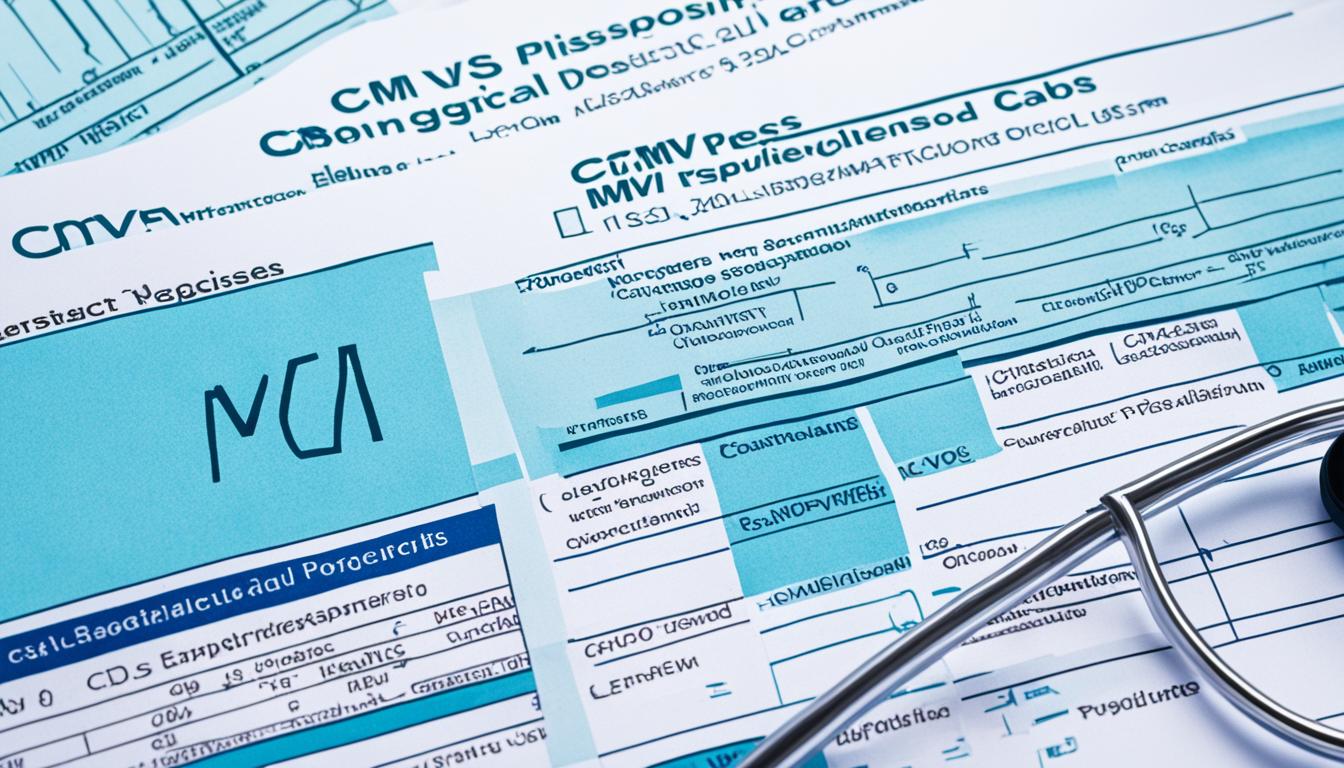Cytomegalovirus (CMV) is a common, yet harmful, virus, especially for pregnant women and those with weak immune systems. It spreads through various body fluids and can be very dangerous for people with lower immunity. Most healthy people won’t know if they have it because they might not show signs. But, newborns, young kids, and those who are immunocompromised, might. Symptoms include problems like hearing loss, slow development, issues with vision, and problems with organs. Sadly, there is no known cure for CMV right now. But, there are medicines that can help manage its symptoms.
Key Takeaways:
- Cytomegalovirus (CMV) is a common virus that can be harmful, especially to pregnant women and individuals with weakened immune systems.
- CMV spreads through various body fluids and can result in severe symptoms for newborns, infants, and immunocompromised individuals.
- Symptoms of CMV infection can range from mild to severe, affecting hearing, development, vision, and organ function.
- Currently, there is no cure for CMV, but medications can help manage symptoms.
- Practicing good hygiene and taking preventive measures are key to reducing the risk of CMV infection.
Transmission, Risk Factors, and Complications of CMV Infection
CMV infection is spread through body fluids like blood, saliva, urine, and breast milk. Direct contact with these fluids causes transmission. This can happen from sexual activity, organ transplants, blood transfusions, or an infected mother to her baby.
Those with a weak immune system are at higher risk. People with HIV/AIDS, those who had an organ transplant, or are undergoing cancer treatment are more vulnerable. Their weakened immune system makes them prone to CMV.
The impact of CMV varies based on an individual’s health and when they got infected. Healthy adults might only show signs of mononucleosis or have issues with their liver, brain, or nervous system. But those with a weak immune system might face more serious problems.
For individuals with a weak immune system, CMV can cause serious issues including loss of vision, digestive problems, and pneumonia. Babies born with it might have problems like hearing loss, developmental delays, and seizures.
A table below summarizes the key points about how CMV spreads, who’s at risk, and its complications:
CMV Transmission, Risk Factors, and Complications
| Transmission | Risk Factors | Complications |
|---|---|---|
| Direct contact with body fluids: blood, saliva, urine, semen, breast milk | Weakened immune system (HIV/AIDS, organ transplantation, cancer treatments) | Healthy adults: mononucleosis-like symptoms, digestive, liver, brain, and nervous system problems; Weakened immunity: vision loss, digestive problems, nervous system issues, pneumonia; Congenital CMV in infants: hearing loss, intellectual disability, vision problems, seizures, developmental delays |
Prevention and Outlook for CMV Infection
To keep CMV away, follow good hygiene practices. This means washing your hands a lot. Try not to touch fluids like saliva, urine, and breast milk, especially if your immune system is weak. Also, practicing safe sex is important in preventing CMV.
Clean your toys and countertops often, especially when kids are around. Keeping your surroundings clean cuts down the risk of spreading CMV.
If you have a weak immune system, your doctor might prescribe antiviral drugs. These can help stop CMV from causing severe issues.
Scientists are working on a CMV vaccine. They are testing it on women able to have babies. The goal is to lower birth defects by preventing CMV in mothers.
The CMV outlook varies. Healthy people usually get better without treatment. But, those with weak immune systems may need help. Pregnant women should be careful and get checked to protect their babies.

